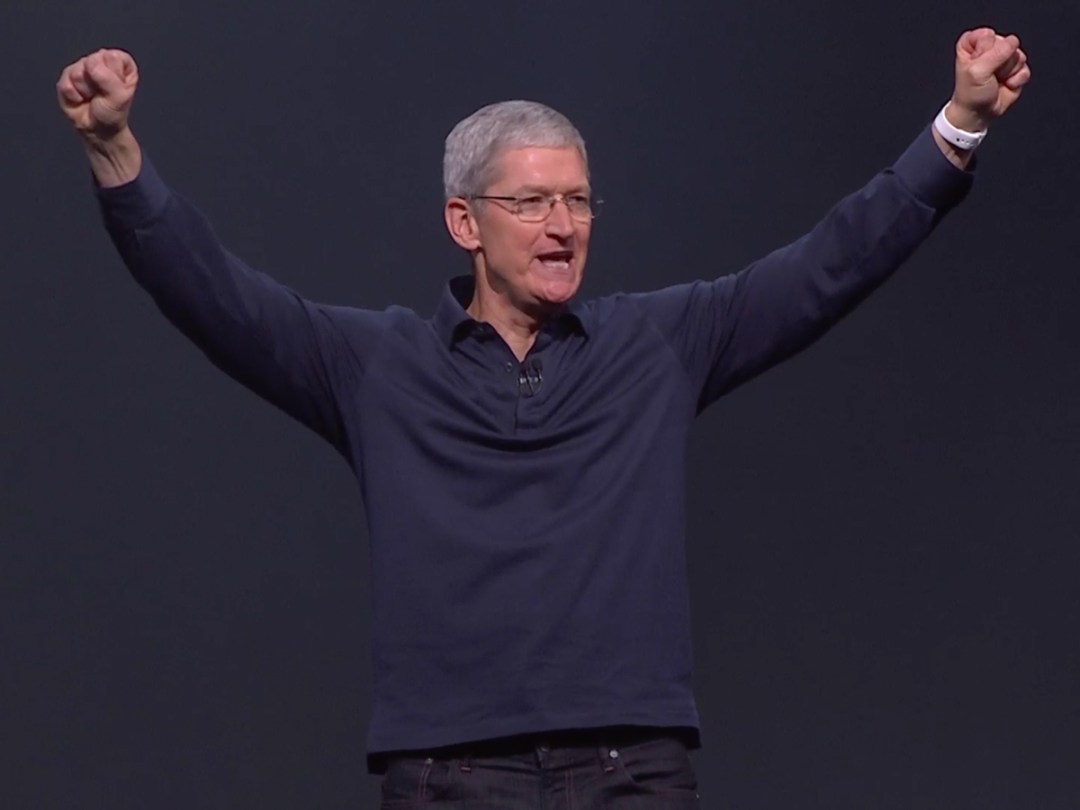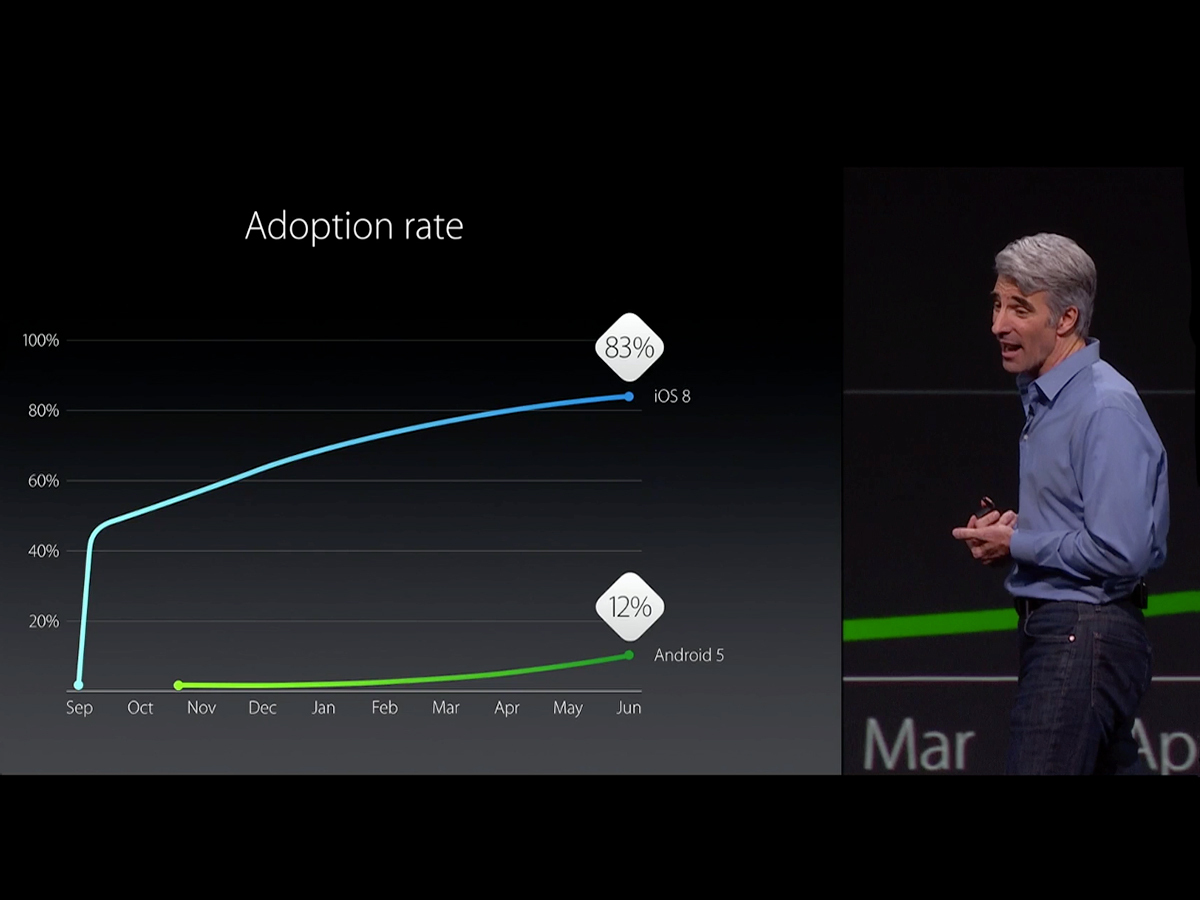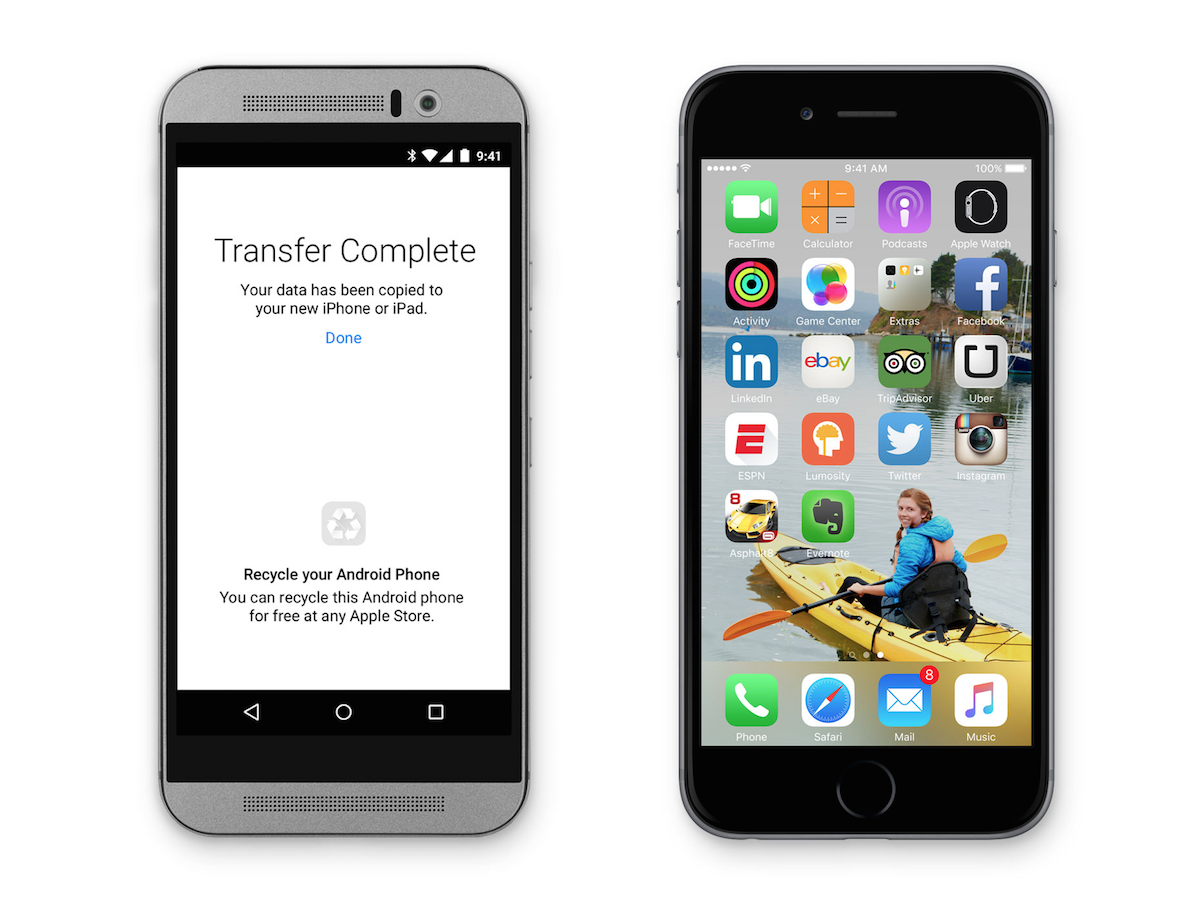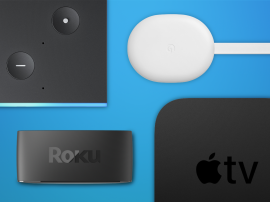Apple’s WWDC keynote repeatedly smacked Google in the face — you just didn’t see the punches
It might not be obvious on the surface, but Apple execs are gunning for Google

Two things were apparent in Apple’s WWDC keynote.
First, it was extremely long, to the point you started to worry it might not end before WWDC 2016. Secondly, it was cheerily affable. Apple execs appear undecided regarding whether they want to be in charge of a leading technology company or to spend their time performing dad-style comedy routines.
This is all veneer, though, because this keynote was laced with hate for Apple’s key competitor: Google.
That may not have been obvious on the surface. After all, Tim Cook’s not quite Steve Jobs in wanting to spend every penny of Apple’s fortune going “thermonuclear” on Android (and, by extension, Google),
But when you delve into the details you soon realise that he and Apple clearly have no love for their former ally.

The most overt barb at the keynote was during one of precisely two mentions of a Google product. When comparing operating system uptake, Apple revealed 83% of iPhone users were running the latest iOS; by comparison Android 5’s equivalent figure was just 12%. To drive the point home, Apple helpfully pointed out the benefits of quick OS transitions: more users having access to recent features and security fixes, and apps utilising the “latest and greatest” APIs.
Other jibes lurked. There was Apple’s gleeful reveal that Maps has 3.5 times higher usage on iOS than the “next most-used mapping app” — and everyone knew what that meant.
Then we were told “technology and art can work together — at least at Apple,” which apparently has the human touch, unlike its algorithm-obsessed competition. And the most algorithm-obsessed is of course Google, aiming to filter your content through its tendrils, in order to present you with the information you might need (or that it wants to show you from advertising partners).
If you’re wondering if this is reading a bit too much into Apple’s current thinking regarding Google, two subjects that came up often at the WWDC keynote should convince you otherwise: search and privacy.
OS X and iOS are both receiving major Spotlight updates. On OS X, this search technology was shown grabbing sports results and the details of upcoming games, along with weather reports, and all by responding successfully to plain-English input; on iPhone, Spotlight searched video sites and returned descriptive cards that played video directly inside of the search pane.
Apple talked about APIs for devs to plug new search capabilities into their apps, deep-linking and round-tripping. Search for ‘potato’ and you get results from Yummly; look for places to stay and you can delve into Airbnb, and then return right back to iOS search. Magazines and current events, too, have a similar future in Apple’s mind, to be accessed, filtered and read entirely in the new News app.
The inference couldn’t be clearer: while many of these apps, services and publications are of the web, Apple doesn’t want you using the web. It wants you to stay within ‘iOS’, whether you’re searching or consuming content. Google — which, remember, still makes most of its money from browser ads — is bypassed entirely.

References to Google in all but name continued as Apple execs spoke of a key decision that underpins these new search technologies, and also of the iPhone’s increasing ‘intelligence’, whereupon it learns to understand more about your routine, providing increasingly relevant information and content accordingly.
We were told these features would enhance how you use your device, but “without compromising your privacy”. Everything remains on-device. It was very clearly stated that Apple would not “mine your email, your photos, or your contacts in the cloud, to learn things about you”. SVP Craig Federighi pointedly added, for good measure: “We honestly just don’t wanna know.”
Naturally, some of these things will merely serve to further convince some people that Apple is erecting ever-higher barriers around its walled garden. Android, in many ways, remains comparatively open.
But Apple’s being perfectly open about how it sees the future of the web and how important it considers privacy, even if the disdain it feels for Google is somewhat obscured. What remains to be seen now is how Google will respond.
RELATED › Apple iPhone 7 (or 6s) review



